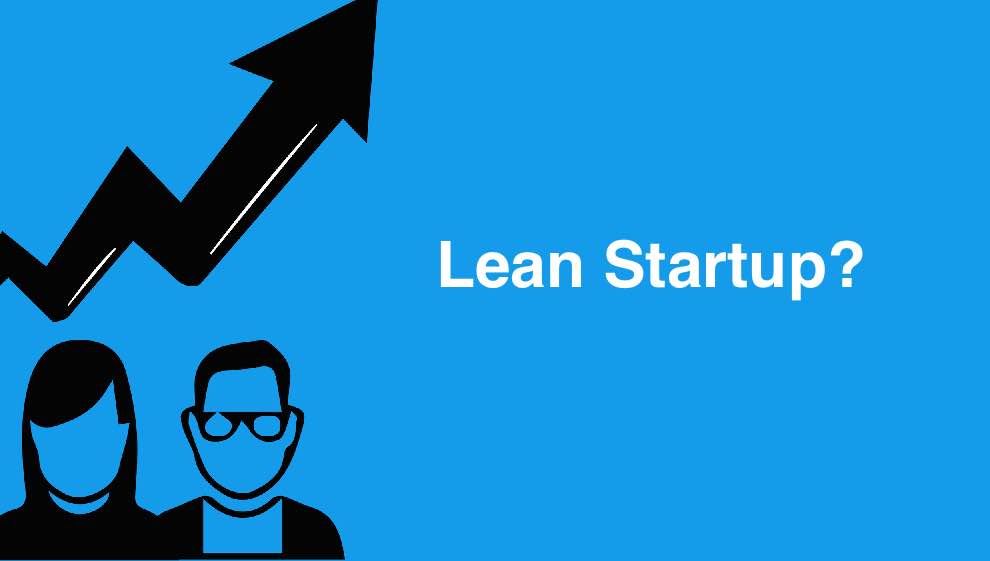Hello!
If you are in the startup world, we are pretty sure you've heard about the lean startup methodology. What is lean startup? What does lean startup mean? How to define lean startup? The lean startup framework or lean startup methodology is a common method used by startups but it's often misunderstood by entrepreneurs. This is why, today, we want to give you the 'ultimate' lean startup definition. I've already given you the growth hacking definition and the inbound marketing definition: now, it's the turn to lean startup to be defined.
 If a business owner wishes to create successful company and product, their key task is reducing different risks. Entrepreneurship is definitely a risky business and as such, one of the primary missions of the entrepreneurs is to systematically and gradually get rid of the risks. The key in this is that whenever developing a product, entrepreneurs focus on the largest risks first.
If a business owner wishes to create successful company and product, their key task is reducing different risks. Entrepreneurship is definitely a risky business and as such, one of the primary missions of the entrepreneurs is to systematically and gradually get rid of the risks. The key in this is that whenever developing a product, entrepreneurs focus on the largest risks first.
As what’s mentioned before, the largest risk is the newly founded companies are rarely the manufacture of the solution or product. With today’s times of cheap manufacture, entrepreneurs can be very fast to make a product with enough effort, money, and time.
The biggest risk for the entrepreneurs is that they will create a product that nobody likes to purchase. When entrepreneurs are just starting, they only have a hunch regarding the problem that potential clients face, a suitable solution as well as even the logical customer segment.
Since they’re only the hunches of entrepreneurs, creating a solution very quickly, and choosing the customer segment or the entire business model very early can lead to failure. A solid strategy, good plan, and implementation of marketing plans seem like the right strategy at first because these are the things that big companies have. However, applying such traditional tools to the newly created companies do not make sense because the latter face uncertainty.
The bigger the uncertainties are, the more difficult it is in predicting the future. That is the reason why planning can be exact when it is based on a stable, long history of the startup in a relatively stable surrounding that does not apply to newly created or established companies.
If the entrepreneurs build products that nobody would want to purchase, this makes no difference if it is made on schedule as well as with planned resources. This statement indicates the fact that the basic task of entrepreneurs is learning which product to make at all and that’s the product for which customers are prepared to pay and in short possible time.
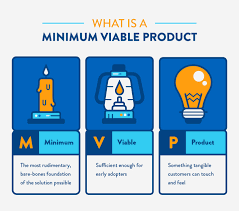 As the solution to quick and complex changes in the environment, the new method of building a new company developed known as lean startup.
As the solution to quick and complex changes in the environment, the new method of building a new company developed known as lean startup.
The lean startup methodology is the new look on the development of innovative products, which emphasize fast iterations of product development that is based on the new insights to the wishes of customers and including big visions or high ambitions of the business team at the same time.
In today’s economy, the question “can it be built?” is not crucial anymore for the reason that nearly any product may be created since there are sufficient means of the production are available. More important questions in modern economy are whether a particular product must be built and whether it’s possible to build long-term sustainable business model around the products.
Manufacture capacities of the developed countries are bigger and more developed compared to the knowledge of what the market really wants. With the manufacturing capacities reaching the point where you can manufacture nearly anything you can think of, the question of whether you can make new services or products are not in the foreground anymore, yet instead whether this makes sense to build this and if it’s profitable.
For every lean startup, this is necessary that they let go as soon as possible of wrong assumptions that they can describe history exactly, even more exactly plan or predict the future and co-create this. What must come to the forefront is the realization that the entrepreneur’s assumptions or the business team regarding the market, the customers and their problems are very wrong and only through trying, discovering, and measuring patterns with scientific method can these be true.
The history of the successful startups in the modern times teaches everyone that by far the most essential factor for the business success of established and new companies is a desire for verifying assumptions in the market, testing, and learning based on the small failures and looking at the problem’s right combination that brings the final huge success.
Customers are what make the product into a success story. Without customers who are ready to purchase the products, it is not essential how innovative ideas are or how affordable the product is because the company will surely fail. With this, there’s an important realization that bigger uncertainties do not do only bring challenges and disadvantages to long-term business planning. Bigger uncertainties are also chances because innovation and uncertainty go hand in hand.
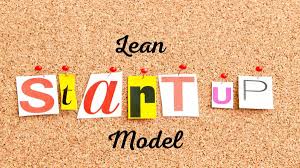 Without the first, there’s no opportunity for the second. The disruptive innovations may happen in an environment where final products, marketing, value offers, prices, and sales channels are at most informed guesswork, yet more like a complete unknown.
Without the first, there’s no opportunity for the second. The disruptive innovations may happen in an environment where final products, marketing, value offers, prices, and sales channels are at most informed guesswork, yet more like a complete unknown.
Now that you got a quick introduction, it's time to give you the lean startup definition by defining what's the lean startup methodology or framework actually is...
What is Lean Startup? What Does Lean Startup Mean?
Lean startup comes from lean manufacturing but it's a little bit different. Lean manufacturing is a production methodology that values the ability to change quickly. Let's define the term lean startup: the lean startup methodology offers a scientific approach to managing and creating startups and acquires the desired product to the hands of the customer faster. The method of lean startup teaches you how to drive the startup, when to turn, how to steer, how to find the right business model and when to persevere and grow businesses with optimum acceleration. This is a principled approach to a new product development.
A lot of startups start with an idea for products that they think people like. Then, they spend months or years perfecting the product without showing the product even in very rudimentary form to the potential clients. Once they fail to reach broad uptake from the customers, it’s often due to the reason that they don’t speak to prospective clients as well as determined whether or not the product was exceptional. When the customers communicate ultimately, through their indifference, that they do not care about the idea, the startups fail.
Get Rid of Uncertainty
 Lack of tailored management process led a lot of startups or as some experts term these as a human institution made to create new services or products under the condition of extreme uncertainty to avoid the process. They also take the just do it approach that gets rid of the forms of management. However, this isn’t the only option.
Lack of tailored management process led a lot of startups or as some experts term these as a human institution made to create new services or products under the condition of extreme uncertainty to avoid the process. They also take the just do it approach that gets rid of the forms of management. However, this isn’t the only option.
With the use of lean startup approach, the companies may create order not chaos through giving tools to test the vision continuously. Lean is not simply regarding spending less money. Lean is not just about failing cheap, failing fast. It is all about putting the process, a methodology around the product’s development. The lean startup methodology will help startups to do what they should do: grow high and fast.
The methodology of lean startup has a premise that each startup is a grand experiment, which attempts to answer questions. The question isn’t about the possibility of building the product or finding a business model right away. But rather, the question should be about the building a sustainable business around the set of services and products. This experiment is just theoretical inquiry and it’s the first product.
If it’s successful, it enables the manager to start with her or his campaign, enlisting the early adopters, adding the employees to every experiment or iteration, and starting to create a product. By the time your product is ready to be distributed widely, this will have established customers already. It’ll have solved real issues and provide detailed specifications for what should be built.
Create an MVP
Lean startup approaches are a radical departure from traditional business practices and those common multiyear business plans. The ideas within this approach contradict long-held principles that entrepreneurs should develop their product based on a fixed business plan.
 MVP (Minimum Viable Product) is at the center of the lean startup definition and framework. Indeed, the core component of the methodology of lean startup is to build, learn, and measure a feedback loop. The first step is determining the problem that should be solved and developing MVP or minimum viable product to start the process of learning as fast as possible. When the MVP is established, the startup may work on tuning the engine and will involve learning and measurement and should include some actionable metrics that will allow you to demonstrate questions about cause and effect.
MVP (Minimum Viable Product) is at the center of the lean startup definition and framework. Indeed, the core component of the methodology of lean startup is to build, learn, and measure a feedback loop. The first step is determining the problem that should be solved and developing MVP or minimum viable product to start the process of learning as fast as possible. When the MVP is established, the startup may work on tuning the engine and will involve learning and measurement and should include some actionable metrics that will allow you to demonstrate questions about cause and effect.
Startups will also use an investigative development method that is known as the Five Whys, which is all about asking questions you can study and resolve problems along the way. If this process of learning and measuring is done properly, it’ll be clear that the company is either moving the driver of the business model. If not, it’s a sign that it’s time to pivot or make structural course correction for testing new fundamental hypothesis regarding the engine of growth, strategy, and product.
Validated Learning
When it comes to manufacturing, progress is basically measured by the production of top notch quality goods. The unit of the progress for the lean startup framework is validated learning, which is a rigorous method to demonstrate progress if one is embedded in extreme uncertainty.
When entrepreneurs embrace validated learning, the process of development may shrink substantially. If you concentrate on determining the right thing to build, the thing that the customers like and will pay for; you should not spend months waiting for the product beta launch to change the direction of the company. But rather, the entrepreneurs may adapt their plans incrementally, minute by minute, and inch by inch.
This is a good start for the lean startup definition but let's go a bit further...
Principles of the Lean Startup Methodology
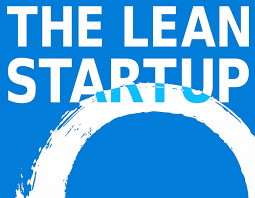 The lean startup framework has become phenomenal in today’s world and it should be seen as the startup owner's manual. It’s now a thing in the industry of startup and an effective methodology of building the best companies from what were ideas.
The lean startup framework has become phenomenal in today’s world and it should be seen as the startup owner's manual. It’s now a thing in the industry of startup and an effective methodology of building the best companies from what were ideas.
The lean startup method helps startup founders start their business ventures by searching for an innovative business model and then testing their ideas as fast as possible. Feedback from potential users is then utilized to adjust their ideas as they move forward.
These are the primary principles involved in the process of lean startup:
• Entrepreneurship is Management
It’s based upon the startup’s institutionalizing. Every startup is not just products. The startups are the institutions that teach you the ways to manage institutions. Following it, this warrants that each startup be different from one another. This only means that the methods to manage startups nowadays have to be geared towards context. You need to manage startups in a way that the method is customized for startup.
• Business Owners Are Everywhere
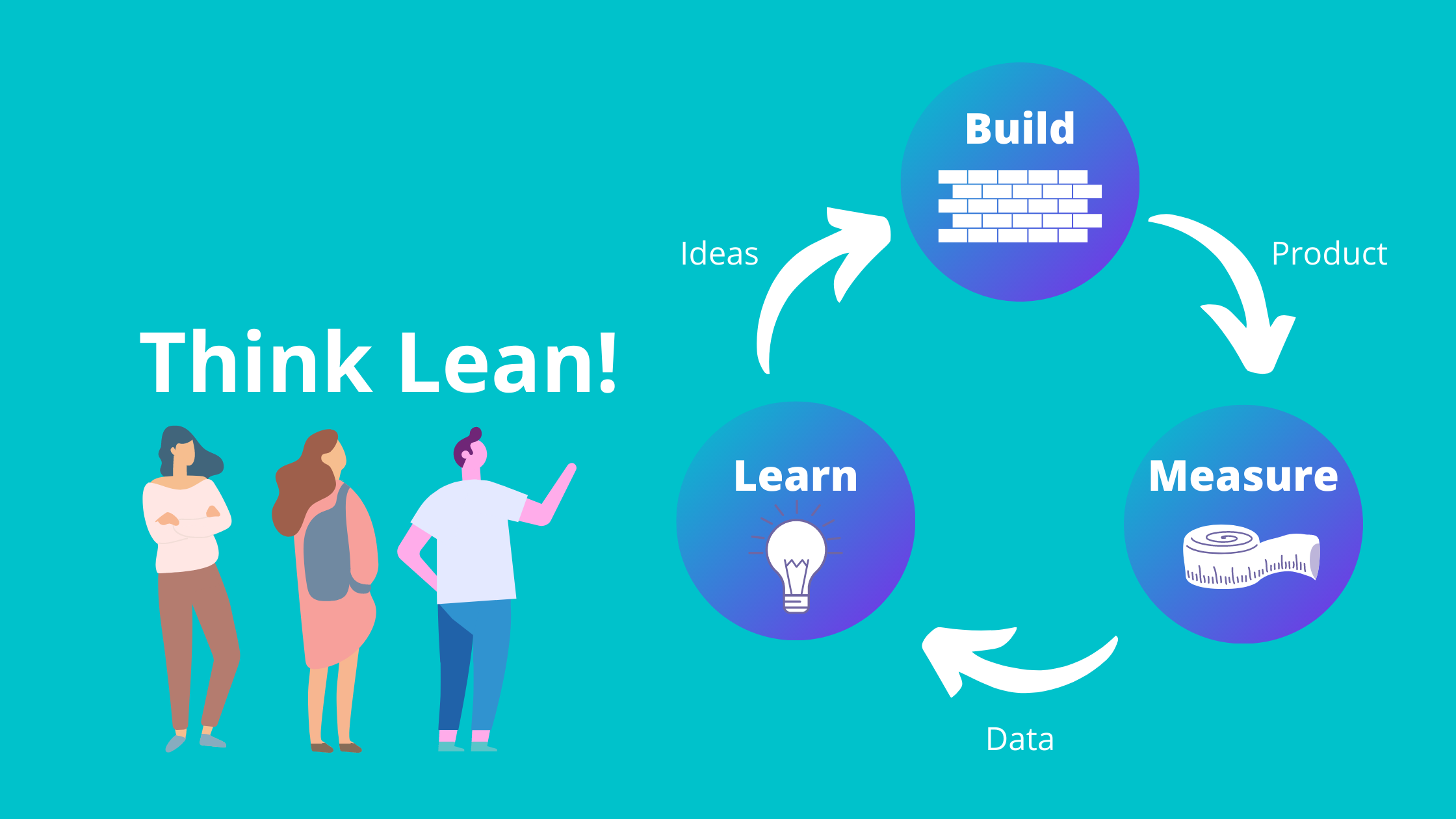 Lean startup’s principle is that entrepreneurs can be found anywhere and you do not need to begin in a garage to be considered as startup. During these days, everybody know that majority of big companies began in a garage and worked there and were recognized as startups. However, startups nowadays aren’t just about working in the garage.
Lean startup’s principle is that entrepreneurs can be found anywhere and you do not need to begin in a garage to be considered as startup. During these days, everybody know that majority of big companies began in a garage and worked there and were recognized as startups. However, startups nowadays aren’t just about working in the garage.
What you must learn from lean principles is that there should never been a better time to innovate today. You have to think big, yet you need to start small and scale quickly. This is the mentality in this principle. If you think you have an idea, start small in wherever you want and keep going.
• Validated Learning
The lean startup methodology is an approach to developing new products that have the potential for rapid adoption, with short time frames between idea conception and market launch. The process typically involves generating several ideas based on assumptions rather than factual data or empirical evidence; then verifying those hypotheses through rigorous testing methods such as business model canvas (a visual representation) or customer validation tests where you observe what users do in order to see how much value they get out of your product before deciding if there's a need in their lives at all.
The lean startup definition is actually based upon the learning process. You don't need a 2-year business plan when applying the lean startup model. Lean startups establish a business model based on hypotheses, which are tested rapidly and then reworked. The learning aspect is a credible way to build your company. The proven assumption is that once you spend time building products to what your customers like diligently and continuously, you’ll most certainly can’t go wrong on the end products that come after the entire process.
• Build, Measure, and Learn
It isn’t just a basic principle of lean startup. It could be the main thing as well. The process of creating a big company isn’t simple. With this principle, it will guide you as an entrepreneur to build your MVP or minimum viable product and build your company around this MVP tuning and tweaking around it.
Of course, before you tune, you should evaluate the metrics and effects from the people who are using the market and the product. This is why customer feedback is crucial. Therefore, to sum everything, it’s a process of build first, measure the effects of the product to consumers and the market. After than learn and build each single time taking consideration the metrics you have measured.
• Innovation Accounting
 When it comes to a startup, the levels of accounting will not only be financial-based documenting revenues, profits, sales, and losses, but also they will involve what the lean startup methodology refers to as the boring thing like how to measure the progress, prioritize work, and setting up milestones.
When it comes to a startup, the levels of accounting will not only be financial-based documenting revenues, profits, sales, and losses, but also they will involve what the lean startup methodology refers to as the boring thing like how to measure the progress, prioritize work, and setting up milestones.
This kind of accounting is known as innovation accounting. The account for creative ways is coming up within your startup to solve issues. It will be essential for the reason that this holds the entrepreneurs accountable, particularly when they’re bootstrapping and there are no investors.
The lean startup principles can be applied if you're building a startup from scratch but it can actually been used for a much more advanced company or organization.
What is the Main Benefit of the Lean Startup Framework?
 A startup creates a minimum viable product (MVP) and asks for customer feedback as quickly as possible. Based on the answers obtained, it aims for new versions of that MVP to adjust until it finds the ideal product.
A startup creates a minimum viable product (MVP) and asks for customer feedback as quickly as possible. Based on the answers obtained, it aims for new versions of that MVP to adjust until it finds the ideal product.
To give your startup a better chance of success, follow the principles of the lean startup approach. This means verifying assumptions through customer development and incorporating feedback into short development cycles to check if you're on track along the way.
The lean startup methodology likes to engage with the customers on an organic level so they have clearer and engaging frameworks. Since they are testing to see whether the MVP (Minimum Viable Product) or prototype will work or not, it will help to shape the maximum end product. This also teaches every entrepreneur to be strategic and lean with their budget and resources
Know the Challenges of the Lean Startup Process
Even if people want to think that this methodology is new and may be applicable to any kind of business, this is not quite the case. It is a slippery definition that cannot be applied anywhere. Several industries cannot come up with an MVP (Minimum Viable Product) like the gaming industry that tends to have a shorter longevity. Another industry is the e-commerce, which is the opposite of the lean startup framework, where they need to spend lots of money to build product catalogs of their business.
What You Should Know about Pivot
Finding the right business model is no easy task. An entrepreneur uses feedback to re-engineer their product in order for it to be more appealing and useful. The lean startup method also advocates iterative development. By talking to your customers, you can adjust the product or business model based on customer feedback. If needed, pivot from a big-picture idea into something specific that will work in reality by using the process called Customer Development Methodology coupled with the Agile Development Framework.
This way, you can verify if the product features and distribution channels could work. Based on customer feedback, you'll either make adjustments to pricing or pivot your business model by revising the idea completely.
 Pivot does not mean completely failure even if in some cases, you have to change and stop. One of the most difficult things for the entrepreneurs to accept is by admitting that the business concept does not work and they need to stop. Knowing when you should stop is important to prevent damage in the long run and to stop and turn directions when needed.
Pivot does not mean completely failure even if in some cases, you have to change and stop. One of the most difficult things for the entrepreneurs to accept is by admitting that the business concept does not work and they need to stop. Knowing when you should stop is important to prevent damage in the long run and to stop and turn directions when needed.
In a lot of cases, pivot may mean one of the product features requires an adjustment to the market trends. Same thing might happen after you obtain customer feedback, you decide that you have to change marketing strategy and adding features.
Other Things to Know about the Lean Startup Approach
You have to be very flexible and prepared to face uncertainties when applying the lean startup framework to build your business. Being lean is a very crucial habit and a must for every entrepreneur. Never be too prideful as well as stubborn with your idea, but rather, listen to feedback and hit brakes if necessary.
If we have to summarize the lean startup definition with one word, it would be: feedback. Once you come up with a plan to build products and applying the method of lean startup, there is no reason that you cannot come up with something that’s useful for everyone.
Why Corporate Innovation Teams Must Consider the Lean Startup Framework?
 Large corporations and established companies are now applying lean startup ideas. Companies of any sizes using lean principles tend to experience less failures because of the idea to research a scalable business model. While the methodology of lean startup is employed often by the high-growth startups, the iterative process of build, measure, and learn makes it very popular among the tech entrepreneurs, making it a good framework for the corporate innovation teams to test their concepts.
Large corporations and established companies are now applying lean startup ideas. Companies of any sizes using lean principles tend to experience less failures because of the idea to research a scalable business model. While the methodology of lean startup is employed often by the high-growth startups, the iterative process of build, measure, and learn makes it very popular among the tech entrepreneurs, making it a good framework for the corporate innovation teams to test their concepts.
That is the reason why and how large companies like Samsung, ING, and GE are adopting this methodology in an effort to run more like high-growth startup.
Once you work in the corporate environment and searching for ways to enhance revenues, the cycle of product development or company’s innovation culture, lean startup can be a good way to reach goals. See how some businesses will use it and when this might not be a good fit for the organization.
Allows You To Save Money in Developing Products
Product development is a customer-centric process. It is because the products are made to solve the customer problems. As the company grows, it may start forgetting to listen to as well as talk with the customers when you are zooming along with work, knowing how to stop asking for customer feedback might be a waste. However, as this turns out, the central activity may save companies tons of dollars in product development once they considered sticking with it.
Founded in the year 1892, GE was established by Thomas Edison and formerly called General Electric, might know that the story better than many people. With the revenues of $140B last year, GE is still renowned for its industrial prowess, yet internally, it is searching for ways to build products cheaper, better, smarter, and faster.
This is the reason why the company is excited with the FastWorks, which is an initiative made to get the company acting more like a modern startup. The program of lean startup is focused on building dedicated teams, customer validation, and iterating upon MVP.
GE launched the FastWorks through training hundreds of business leaders under the methodology of lean startup creating a team of 150 coaches responsible for advising managers and launching tons of projects under FastWorks with the use of the pitch process that’s led by the growth boards that approve projects as well as allocate resources.
The process of pitching is the same to pitching on the television show called SharkTank that some who have experienced this say. The hopeful manager with project idea pitches the growth board in the business unit, acquires feedback on the idea, and a rejection or approval. Rejection is not the end of the line, yet a lot of ideas take different iterations before getting the green light.
 It could include reworking prototype plan, cutting the projected costs or something that the board finds necessary to have winning projects. Ever since FastWorks was launched, GE was able to save millions of dollars in every project, simply through incorporating customer feedback often and early.
It could include reworking prototype plan, cutting the projected costs or something that the board finds necessary to have winning projects. Ever since FastWorks was launched, GE was able to save millions of dollars in every project, simply through incorporating customer feedback often and early.
In the previous years, it might have taken five to six years to get products out of the door while seldom result in dismal user feedbacks. Nowadays, the same product may be launched in a year with dozens of iterations based on the user feedback.
GE succeeded in cutting the cost of development by sixty percent in one of the divisions and reducing time to the customer validation by eighty percent in another. GE is now on its way to rolling out the program to hundreds of thousands of employees in different countries around the world.
Accelerate Internal Growth and Find Partners
Through having internal teams as well as external startups go through the lean startup in its accelerators, ING, a Dutch banking and financial corporation is setting itself up to search for product solutions and possible partners quicker that it could with the use of the traditional business development and product development methods.
What Could Go Wrong with the Lean Startup Methodology?
Nothing could go wrong with the lean startup framework... just kidding!
 One of the downsides is to not have enough preparation and a business plan. Of course, you don't want to spend weeks crafting a business plan that you will never follow but having some idea on how you're going to grow, gain traction, work on customer acquisition and develop your product are still important elements that you don't want to neglect.
One of the downsides is to not have enough preparation and a business plan. Of course, you don't want to spend weeks crafting a business plan that you will never follow but having some idea on how you're going to grow, gain traction, work on customer acquisition and develop your product are still important elements that you don't want to neglect.
Success was seen around the industry with lean startup could be why even top down corporations like electronics giant are clamoring to announce the new startup initiatives. Lean startup is not a wholesale changer to acting like startups, yet instead an adaptation of the entrepreneurial behaviors. If the corporate will suffer from any issues, lean startup methodology might not fit for companies until you can address these.
So, How to Sum-up the Lean Startup Definition and how to make the Most of the Lean Startup Methodology?
The "5-year business plan" approach is over with the lean startup approach. So, this was my definition of the lean startup method and we believe any young tech ventures should know about it. As you can see, this is not magic, this is a process of fast iteration where the goal is to produce an MVP (Minimum Viable Product) as soon as possible. To summarize, you want to launch your product, service or startup as soon as possible in order to test the market. Agile development is important to customer success, as it provides opportunities for the product team and customers to work together.
Thanks to the lean startup framework, a startup is now redefined as an organization that's searching for a scalable business model, not one with an existing plan to execute. One of the main reasons why startups fail is by creating a product that nobody wants. Lean startup principles can prevent that. Instead of building a product for months in order to make it perfect, it's better to launch a simple product with the minimum required (MVP) the fastest way possible and test the market. This product can have issues, it won't matter. The goal is to get feedback as early as possible to make your product more user-centric and adapt to people's needs.
There are many key principles to the lean startup methodology but if you only need to remember one thing: build a minimum viable product, launch fast, gather data and feedback and most importantly act on to always make your product more user centric. Don't focus on product features, focus on the benefits.
- Successful Localization Practices for E-commerce Businesses
- Why Does Your App Need It?: Compliance Testing
- Common Problems Faced By Nigerian Expatriates
Thank you!
Subscribe to our newsletter! Join us on social networks!
See you!

